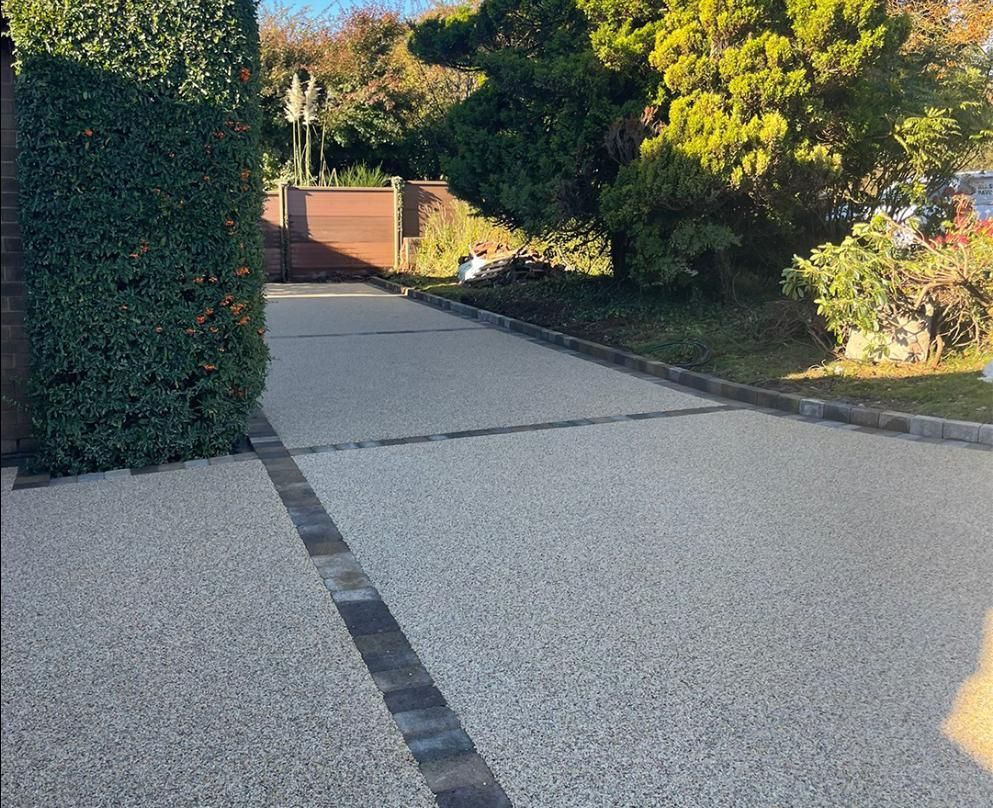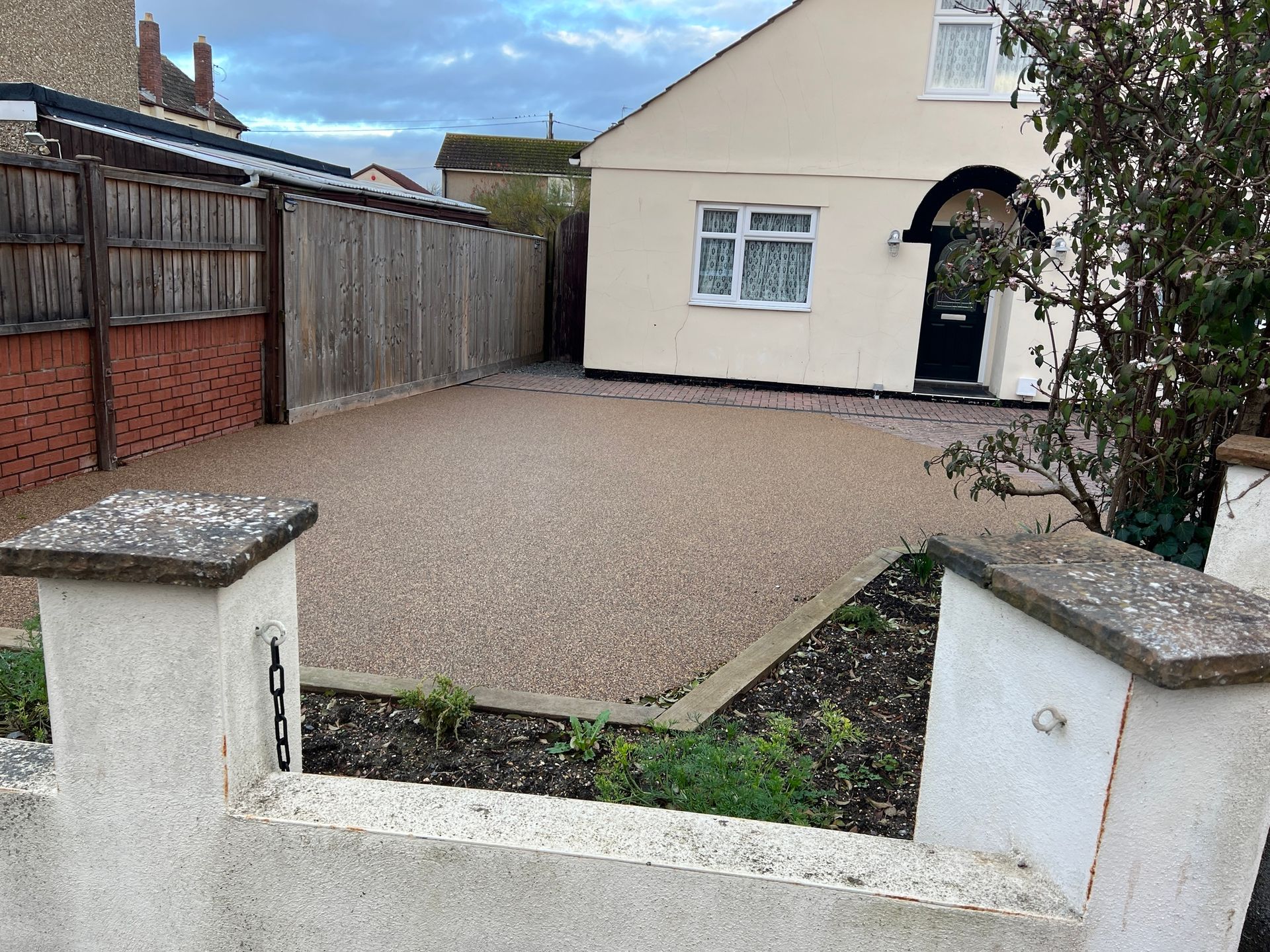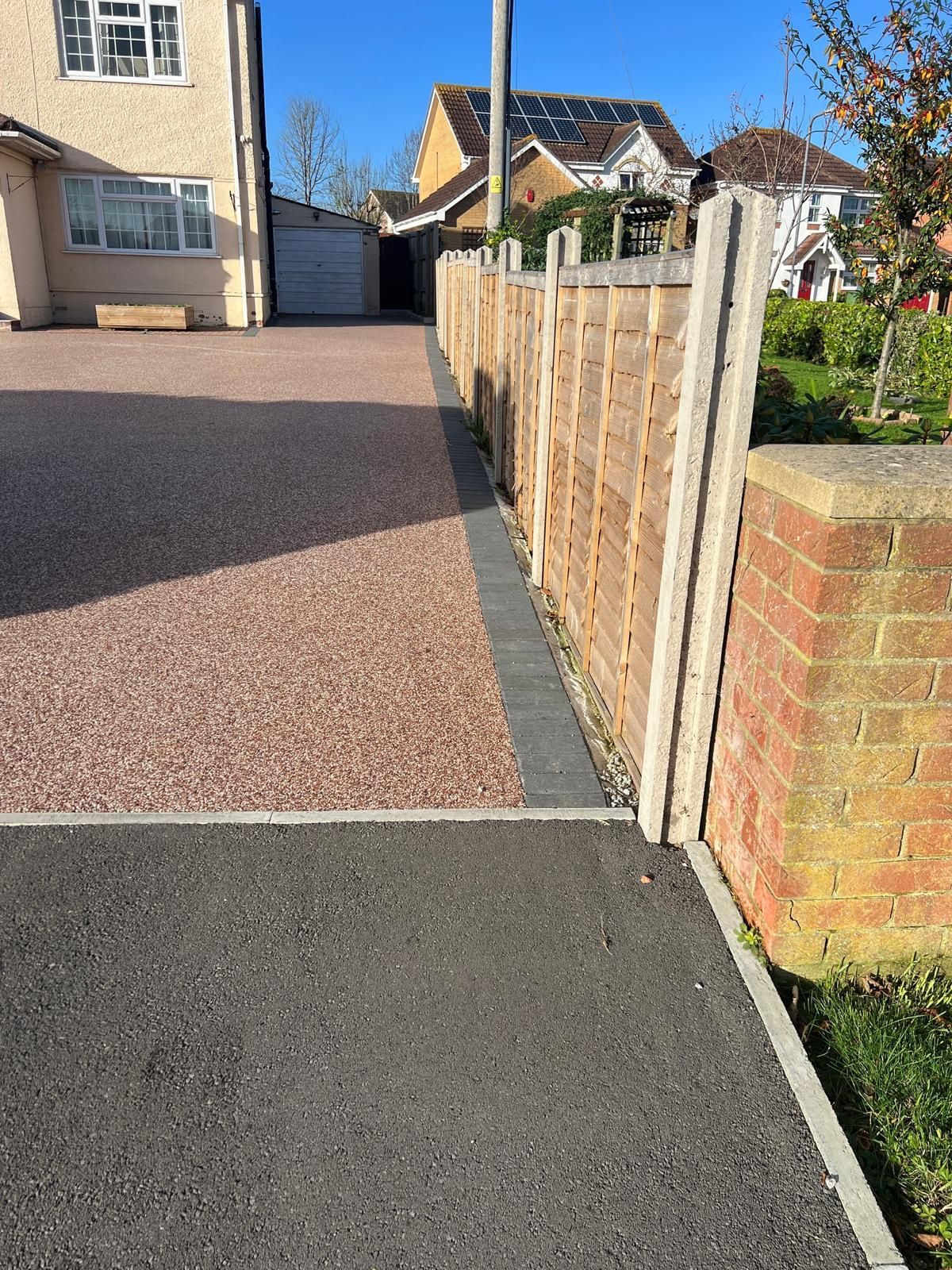Resin or Concrete: Which Driveway Material Is The Best
When it comes to selecting the perfect material for your driveway, you have various alternatives. Resin and concrete are two common options among homeowners. Both materials have their own set of benefits and drawbacks. When it comes to choosing the ideal driveway material for your purposes, understanding the distinctions between resin and concrete will help you make an informed selection. Today, we're going to compare resin and concrete to see which one is best for you!
P.S. We provide both resin, and concrete, so there is no bias involved.
To start, here is a table with benefits of both materials:
| Concrete Driveways | Resin Driveways |
|---|---|
| Durable and long-lasting | Durable and resistant to wear and tear |
| Classic and timeless appearance | Sleek and modern appearance |
| Various finishes available (brushed, stamped, exposed aggregate) | Wide range of colors and designs available |
| May require periodic sealing or staining | No sealing required |
| Regular maintenance required (sealing, occasional repairs) | Low maintenance (sweeping, occasional power washing) |
| Initial cost is generally more affordable | Long-term cost savings due to durability and low maintenance |
Here are the downfalls of the materials:
| Drawbacks of Concrete Driveways | Drawbacks of Resin Driveways |
|---|---|
| Prone to cracking or chipping over time | May not be suitable for extremely heavy loads |
| May require periodic sealing or staining for maintenance | May not be suitable for extremely hot climates |
| Can fade over time, requiring restoration | May be more expensive upfront compared to concrete |
| Cracks or potholes may develop and require repairs | Installation may require professional expertise |
| May be more susceptible to oil stains | May not be suitable for extremely cold climates |
Which Material Is More Durable?
Concrete driveways are well-known for their
toughness and
longevity. They are more
resistant to cracking and
chipping and can sustain
heavy vehicle usage. However, due to
weather conditions or
ground movement, concrete can
crack over time.
Resin driveways, on the other hand, are extremely
long-lasting and
impervious to wear and tear. They are
flexible and
less prone to cracking, making them ideal for places with
unstable ground or
extreme
weather conditions.
Which Material Is More Appealing?
Concrete driveways have a
traditional and
timeless appearance. They are available in a variety of
finishes, such as
brushed,
stamped, or exposed
aggregate, allowing you to select a
style that complements your home. Although, concrete can
fade over time and may require frequent
sealing or
staining to keep its appearance. In contrast, resin driveways have a
sleek and modern appearance. Resin driveways can be
customised to match your aesthetic tastes, boosting the
overall curb appeal of your property, with a
wide selection of colours and designs available.
The Installation Process
A
professional normally installs
concrete driveways.
Excavating the area,
pouring and
levelling the concrete, and allowing it to
cure are all part of the procedure. Depending on the
size of the driveway, this could take
several days. Resin driveways, on the other hand, are
quicker and
easier to install. The resin is poured onto a
prepared substrate and
properly dispersed, resulting in a
flawless finish. Resin driveways cure far
faster than concrete driveways, allowing you to use your driveway
sooner.
Which Material Requires The Most Maintenance?
Concrete driveways must be
maintained on a regular basis to
keep their look and
prevent cracking. This involves periodically
sealing the surface to prevent it from
stains,
moisture, and
UV damage. Concrete driveways may also require maintenance if
cracks or potholes form. Resin driveways require
less upkeep. They don't need to be
sealed and are
stain-resistant, making them easy to
clean and
maintain. Regular
sweeping and
power washing are usually
adequate to keep resin driveways in
impeccable condition.
Which Material Is More Expensive?
The cost of a driveway might vary depending on criteria such as
size,
location, and
installation difficulty. Concrete driveways are typically
less expensive to install than resin driveways. However, because of their
durability and
low maintenance requirements, resin driveways offer
long-term cost benefits. While a resin driveway may need a
larger initial cost, it can deliver a
better return on investment over time.
Long story short, both
resin and concrete driveways offer
distinct advantages. Concrete driveways are
long-lasting and have a
classic appearance, but resin driveways are
versatile,
customizable,
low-maintenance,
durable,
permeable,
UV resistant, etc.
When picking between resin and concrete, consider your
budget, desired
aesthetic, and the specific
requirements of your property. Finally, the ideal driveway material is determined by your own
preferences as well as the specific
necessities of your property. From our article, you will have noticed that
resin is most likely the winner, if we had to pick. Although resin can be
more expensive, it provides
massive returns over time.
See it on YouTube
You might also like
Resin Driveways Bristol




